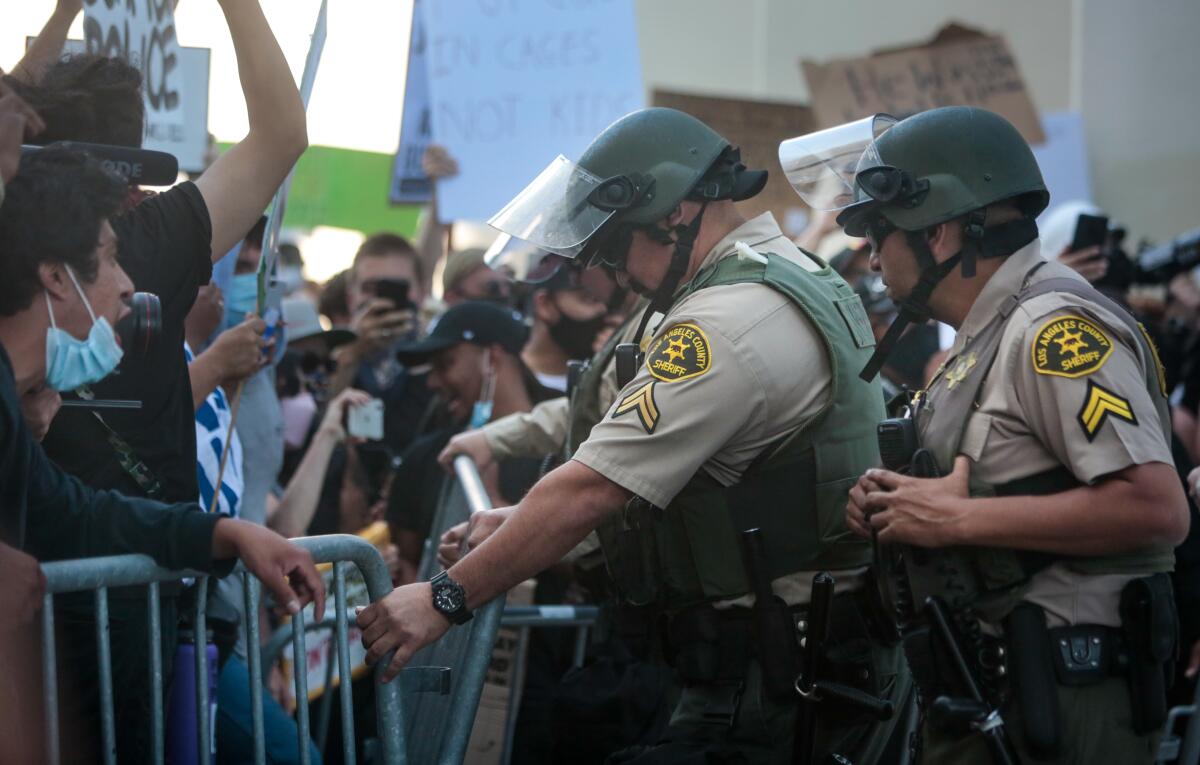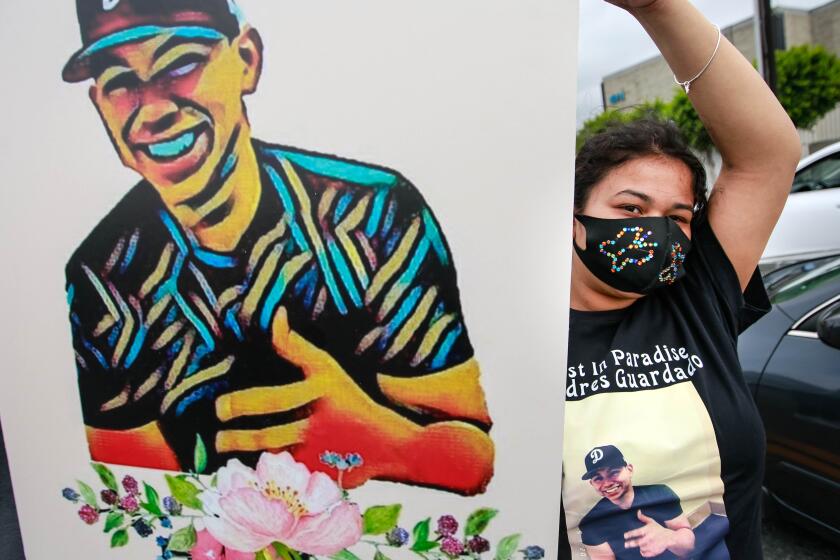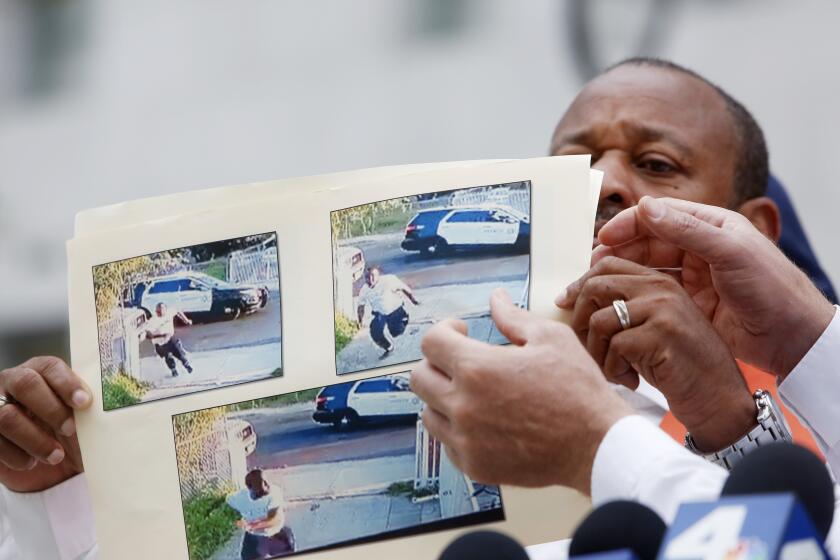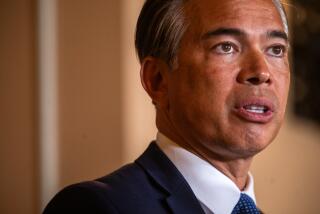Editorial: Sheriffs shouldn’t be coroners too. Split the job.

A coroner is a government official who investigates the cause and manner of a death, including cases that involve violence or controversy. A sheriff is a chief law enforcement officer in charge of preventing crime, making arrests and jailing accused or convicted people.
They’re two very different jobs that routinely come into conflict. A good example is a case in which sheriff’s deputies arrest a person who then dies in their custody. It may be in the sheriff’s political interest to show that some underlying medical condition caused the death rather than a chokehold or some other controversial or unlawful tactic used by the deputies. Law enforcement agencies and officers sometimes cite “excited delirium” — a controversial and not universally accepted diagnosis of extreme anxiety potentially resulting in death — especially when the victim is Black. A sheriff who also is the coroner can interfere with the staff pathologists’ work and write a report that rejects medical and scientific findings to present a pro-law-enforcement conclusion.
Yet sheriff-coroners are the norm in California; in 48 of the 58 counties, the elected sheriff is also the coroner. State law permits counties to combine various offices to save costs, and those decisions are generally best left to local governments — except when efficiency and local control undermine truth, justice and accountability.
Andres Guardado inquest ends without testimony from sheriff’s officials or the deputy who killed him
A retired judge appointed to hold a public examination of Andres Guardado’s death said Friday that she had concluded the inquest without hearing testimony from the deputy who fired the fatal shots or the detectives who are investigating the case, all of whom invoked their 5th Amendment rights.
Consider, for example, San Joaquin County, where in 2017, two forensic pathologists resigned their positions after saying Sheriff Steve Moore — who was also the coroner — interfered with their work. Doctors and technicians in the department said Moore ordered the cause of death to be changed from “homicide” to “accident” in three cases in which law enforcement was involved in the deaths. The Board of Supervisors wisely responded by stripping coroner duties from the sheriff and creating a separate, appointed chief medical examiner’s office.
Only two other states permit combining the sheriff and coroner positions. It’s a bad practice, and California should take three steps to fix it.
They can accomplish the first by passing a bill by Assemblyman Mike Gipson (D-Carson). Assembly Bill 1608 would bar counties from consolidating their sheriff and coroner offices. But counties would still be able to choose whether their boards of supervisors should appoint coroners or their voters should elect them. That’s also a problem. Determining cause and manner of death is not a political task, and the job should not go to the person who could raise the most money and run the most appealing campaign.
Although most states don’t combine their sheriffs and their coroners, many nevertheless politicize their coroner offices with elections or partisan appointments, and that matters far beyond the situation of deaths involving officers.
As we have seen during the COVID-19 pandemic, disease too can be politically charged. Coroners in some states have reportedly refused to list COVID-19 as cause of death in reports and on death certificates if there were alternative or accompanying causes such as chronic obstructive pulmonary disease. That bolsters a political and decidedly non-scientific narrative about COVID-19 and underreports the true impact of the pandemic on the community.
A bar against electing coroners would be a worthy amendment to AB 1608, or a separate follow-up bill.
Along with splitting sheriff-coroner offices and barring coroner elections, California should ensure that all coroners be required to be licensed medical professionals with a certified specialty in forensic medicine or have other appropriate credentials.
It’s only the second time in 30 years that the coroner’s office has launched an inquest.
Los Angeles County has required that its coroner be a certified pathologist since 1956, which makes a lot more sense than requiring its coroner to be an elected law enforcement officer. Like L.A., each county ought to have a chief medical examiner who performs the job in accordance with professional licensing standards.
Sheriff Alex Villanueva made the absurd claim that rather than eliminating politics from determining cause and manner of death, L.A.’s system has done the opposite, as in cases in which the Board of Supervisors requested inquests into the deaths of Andres Guardado, Dana “Malik” Young Jr., Samuel Herrera Jr., Dijon Kizzee and others who were shot and killed by sheriff’s deputies.
It is true that the chief medical examiner-coroner reports to the Board of Supervisors, but that does not make inquests political. The proceedings are presided over by retired judges or other independent parties who do not interfere with the work of the forensic pathologists or the medical supervisors who oversee their work. The process is an important check on Villanueva’s otherwise enormous power to control the evidence and the message about controversial deaths. That power would be even more overwhelming if the sheriff were also the coroner. It’s that way in most of California’s counties and that has got to change.
More to Read
A cure for the common opinion
Get thought-provoking perspectives with our weekly newsletter.
You may occasionally receive promotional content from the Los Angeles Times.












